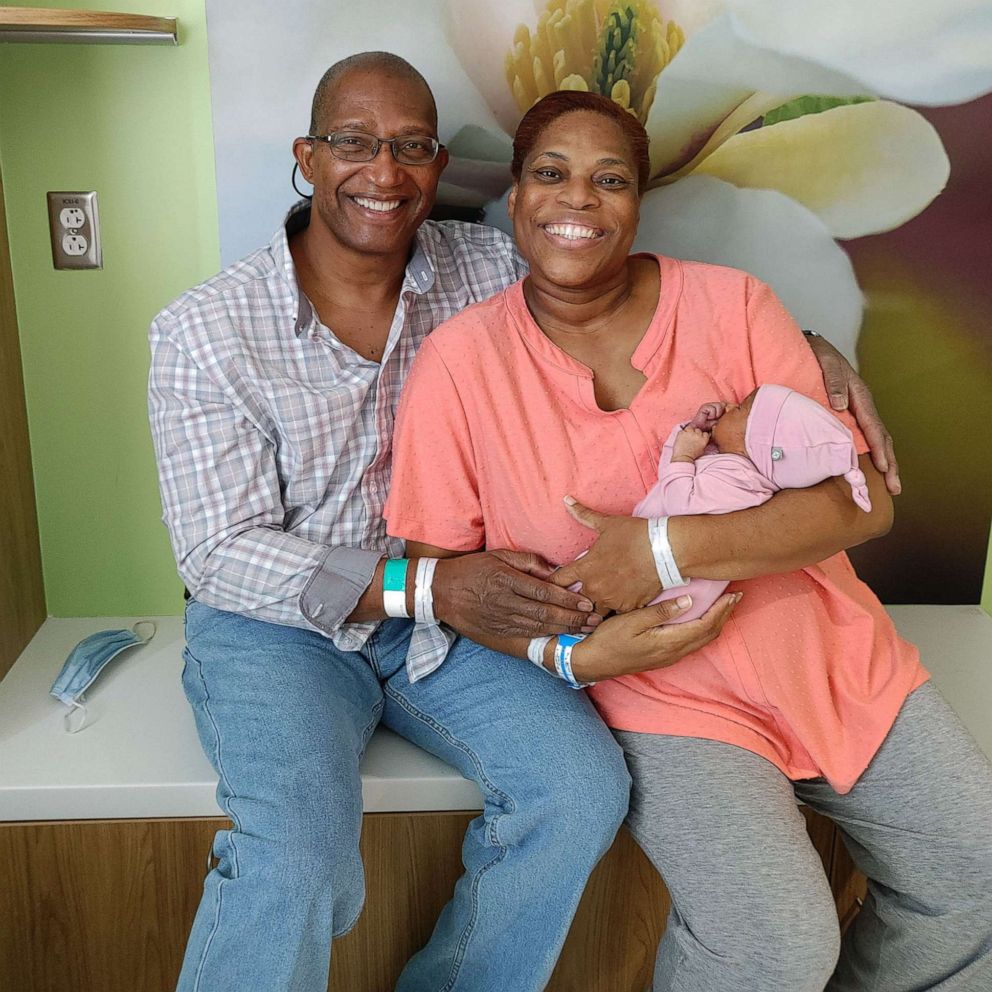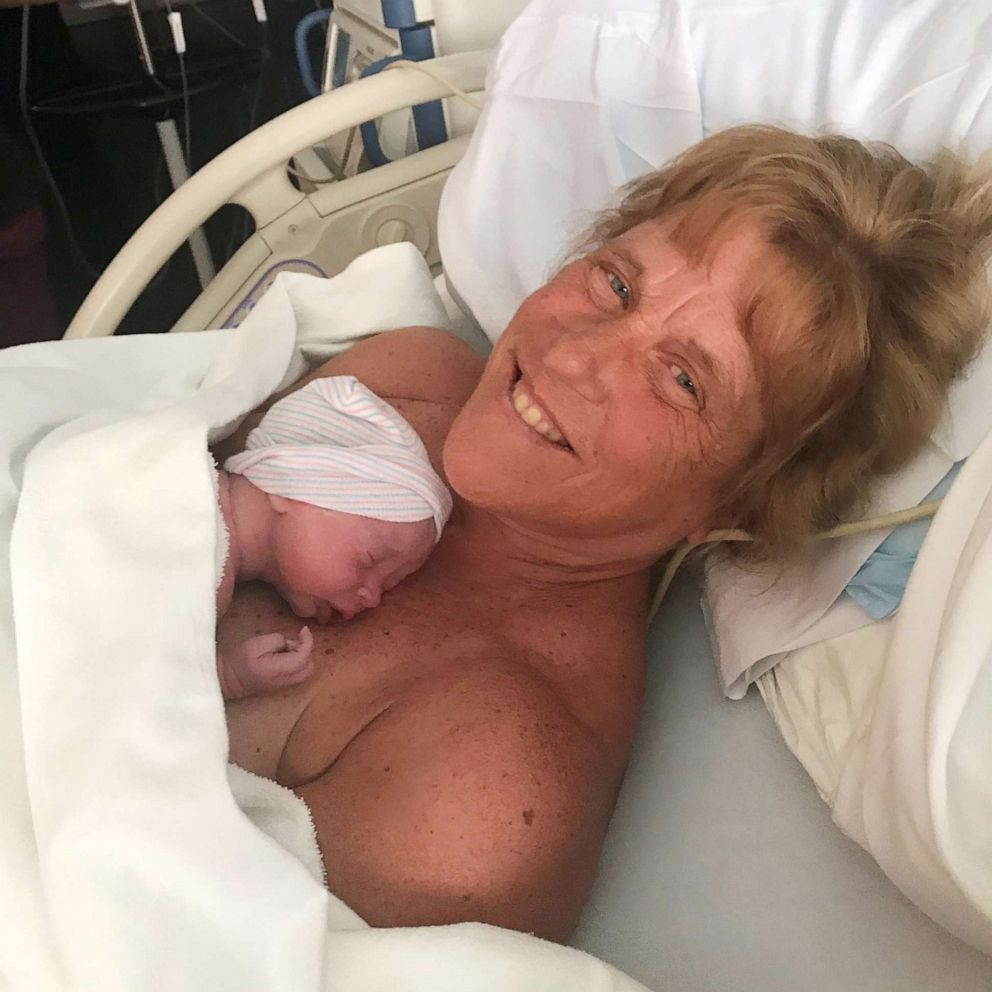Ayesha Curry reacts to her 4th pregnancy being called ‘geriatric’
Ayesha Curry is sparking a conversation about how people talk about pregnancy as women age.
The actress and author announced earlier this month that she and her husband, Golden State Warriors star Steph Curry, are expecting their fourth child.
Ayesha Curry, 34, shared the couple's pregnancy news in the cover story for her website, Sweet July, where she wrote about what it's like to be pregnant in her mid-30s versus her 20s.
"What's been really interesting has been my doctor's appointments," she wrote. "I'm in my 30s, and so there's all this paperwork referring to the experience as a 'geriatric pregnancy' and all the concerns that come along with that."

Ayesha Curry gave birth to her eldest child, a daughter named Riley, nearly 12 years ago, at the age of 22.
She was in her mid-20s when she gave birth to the couple's second daughter Ryan three years later, in 2015, and then in her late 20s when she gave birth to their son Canon in 2018.
The soon-to-be mom-of-four said that as more women make decisions to have children later in life, she would like to see the "narrative" shifted so women are not told they are "old."
"I think there's something that needs to be more nuanced when it comes to women, their age, and conversations around having children," Ayesha Curry wrote. "Many women in their 30s and 40s are going through this for the first time, and being told you're 'old' feels alarming and wild. I think the narrative needs to be shifted a little bit."
What it means to have a 'geriatric pregnancy'
Ayesha Curry is correct in that giving birth later in life is a growing reality in the United States. In 2022, the birth rate for women ages 35 to 49 increased, while the birth rate for women in their early 20s and early 30s decreased, compared to the previous year, according to the Centers for Disease Control and Prevention.
Later this month, on March 23, Ayesha Curry will turn 35, the age that the medical world considers pregnant women to be of "advanced maternal age."
"Advanced maternal age" is the accepted term in the medical community, versus the more colloquial term of "geriatric pregnancy," according to the American College of Obstetricians and Gynecologists.

The age of 35 was chosen decades ago by researchers trying to decide which pregnant women should get an amniocentesis, a prenatal test in which a small amount of amniotic fluid is removed from the sac surrounding the fetus for testing, Dr. Shilpi Mehta-Lee, a maternal fetal medical specialist at NYU Langone Medical Center, told ABC News previously.
At the age of 35, women were determined to have a greater risk of having a baby with Down syndrome than the risk of pregnancy loss from amniocentesis.
"It is a bit of an arbitrary cutoff, but at the same time we do understand that aging does affect pregnancy and pregnancy outcomes," Mehta-Lee told ABC News. "And there are more risks even after you get over the age of 40."
Decades later, the terms geriatric, advanced age and elderly are still attached women to 35 and above who are pregnant, but the science has advanced to the point where that exact age cutoff may seem arbitrary.
The ACOG now classifies pregnant people into categories of five-year increments -- 35-39 years, 40-44 years, 45-49 years, and 50 years and older -- to denote that risks associated with pregnancy increase as women age, versus all women 35 and older facing the same level of risks.
Women above age 40 are considered to be of very advanced maternal age, and women above age 45 are considered extremely advanced maternal age.
Women who are pregnant in their mid-30s and beyond face maternal risks including gestational diabetes, preeclampsia and gestational hypertension, as well as perinatal risks including miscarriage, genetic abnormalities, fetal growth issues, preterm birth and stillbirth, research shows.
With the increased risks comes more monitoring during pregnancy for women in their mid-30s and above. Typically, women of advanced maternal age are screened for chromosomal abnormalities and have more ultrasounds throughout their pregnancy and more frequent doctor's visits and testing as their due date approaches, as compared to younger women.
"When someone is over 35, her doctor is going to look for things a little bit more, just to make sure things are going well," Mehta-Lee said. "It offers an opportunity for the doctor to look one more time, to think about it one more time, and that's not necessarily a bad thing."







